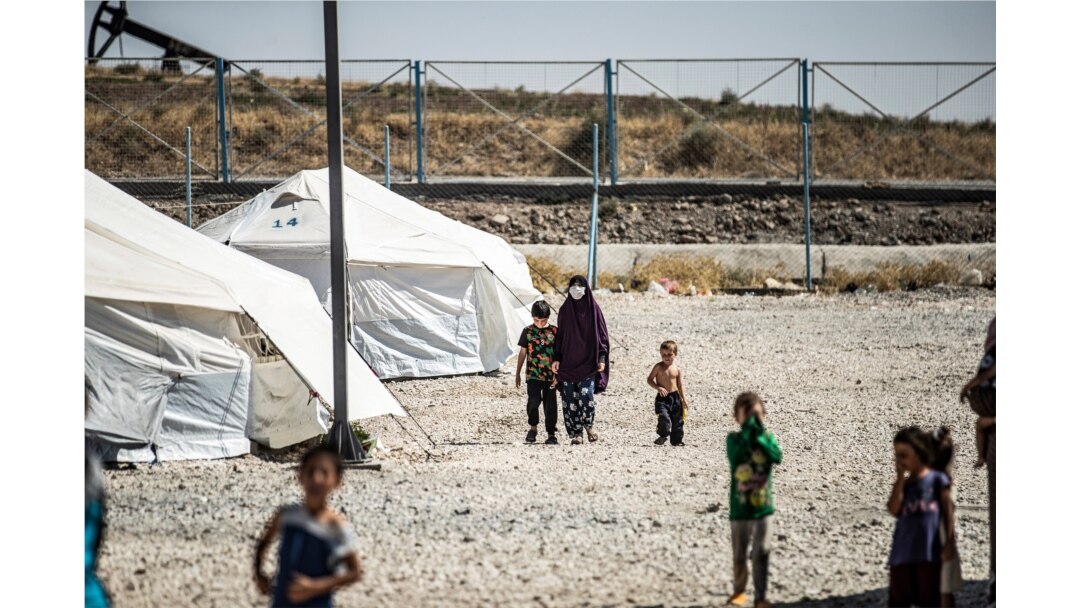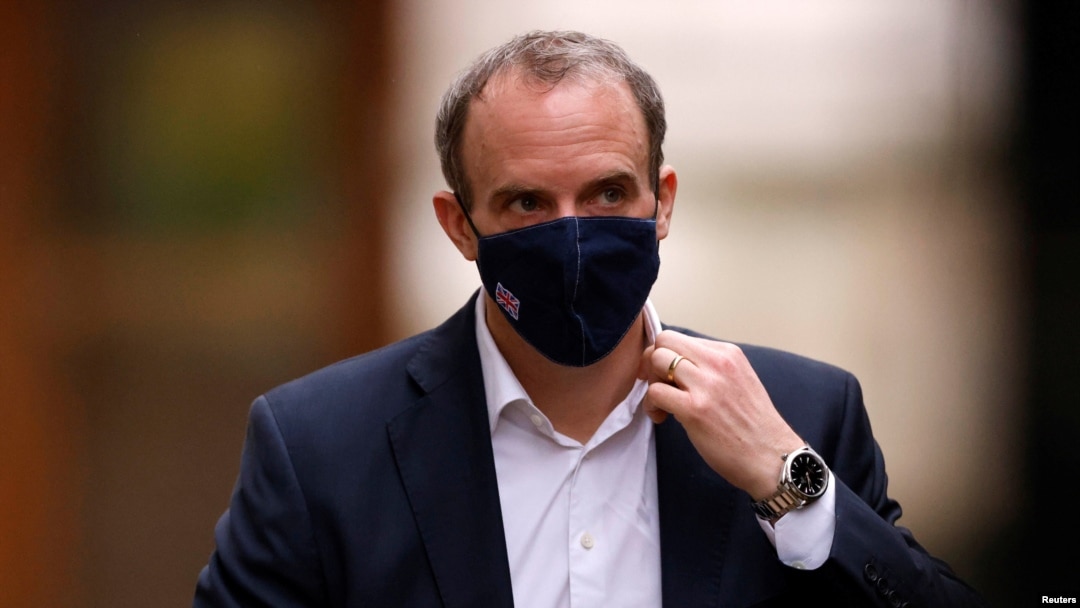Britain’s foreign secretary will call for a U.N. Security Council resolution Wednesday on local cease-fires in order to get COVID-19 vaccines to millions of people in conflict areas.
“We have a moral duty to act, and a strategic necessity to come together to defeat this virus,” Dominic Raab will tell a high-level session of the U.N. Security Council on the global rollout of COVID-19 vaccines, according to a statement from his office. Britain presides over the 15-nation body this month.
The United Nations has pushed for equitable global access to the COVID-19 vaccine, emphasizing that no country is safe until all are. Uneven inoculations could also lead to virus mutations and new vaccine-resistant variants.
More than 160 million people are at risk of not receiving COVID-19 vaccinations because of instability and conflict, in places including Yemen, Syria, South Sudan, and Ethiopia. Britain says temporary cease-fires negotiated on a case-by-case basis when vaccines are available and ready for distribution in those areas could facilitate the safety of aid workers administering them and the civilians who receive them.

FILE - A woman clad in mask due to the COVID-19 pandemic walks next to a child by tents at Camp Roj, housing people who were relocated from al-Hol camp, in Syria's northeastern Hasakah province, Sept. 30, 2020.
Britain points to a successful effort in Afghanistan in 2001 as evidence that local cease-fires can work. There, a two-day pause in fighting allowed thousands of healthcare workers to inoculate nearly 6 million children against polio.
Diplomats said Raab is expected to announce negotiations on a council resolution at the meeting, with the aim of circulating a first draft among members by the end of the week for discussion. It would call for local cease-fires, access to vulnerable populations and funding for the effort.
The initiative faces an uphill battle if a similar effort by U.N. Secretary-General Antonio Guterres is any indicator. In late March, as the coronavirus was making its way across the planet, he launched a call for a global cease-fire to assist international containment efforts. It took the Security Council three months to agree a resolution supporting his call, after bickering between the then Trump-led U.S. delegation and China over the origins of the virus. While fighting has cooled in some conflict zones, there has been no global pause in fighting.
The high-level session will be the international debut of new Biden administration Secretary of State Anthony Blinken, who will join the virtual session and make remarks. Nine other foreign ministers are expected to participate, as well as one prime minister.
U.N. Chief Guterres, the head of UNICEF and the CEO of the vaccination alliance Gavi, will be among the meeting’s briefers.
Wednesday’s session comes ahead of a G7 leaders meeting on Friday, which Britain will also chair and will focus on COVID-19 recovery.


